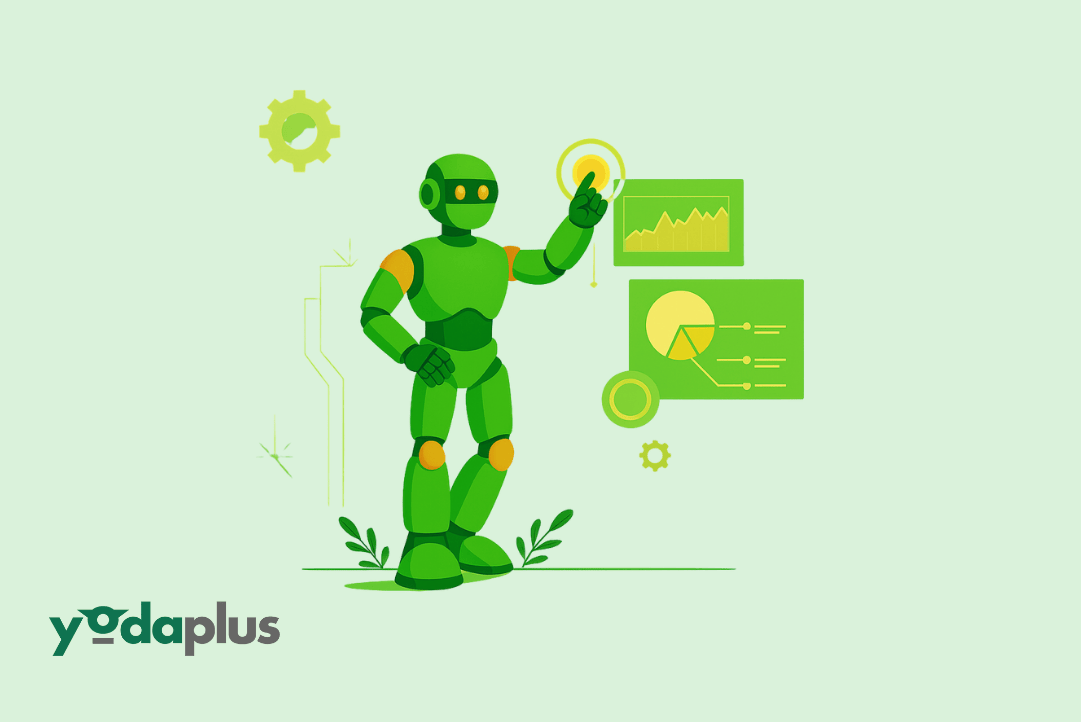
Building Gen AI Systems That Understand Recurring Workflows
September 3, 2025 By Yodaplus
The ability to manage recurring workflows has always been central to business operations. From supply chain tasks to financial reporting, repetitive processes consume time and resources. Artificial Intelligence (AI) now makes it possible to automate these workflows in smarter ways. With gen AI systems, businesses can move beyond simple task automation and build agents that learn, adapt, and understand how recurring workflows evolve.
This blog explains how agentic AI and gen AI tools are helping to design AI agents that work across sessions, follow timelines, and create more reliable results for organizations.
Why Recurring Workflows Need Smarter Agents
Recurring workflows are everywhere: approving invoices, updating reports, or scheduling shipments. Traditional automation can handle these steps if they remain static. But modern workflows change. New data arrives, customer needs shift, and external factors like regulations or supply chain disruptions alter the flow.
Static automation cannot keep up with these changes. This is why companies are turning to agentic AI platforms and generative AI software. These systems allow agents to learn patterns, adapt rules, and ensure that workflows remain effective even when conditions shift.
The Role of Agentic AI in Workflow Management
Agentic AI introduces the concept of reasoning. Unlike basic bots that execute commands, intelligent agents built with agentic frameworks can process context and update their decisions. For example:
-
In AI in logistics, workflow agents can track delivery delays and reroute shipments automatically.
-
In financial reporting, agents can use AI-powered automation to update audit reports and flag anomalies.
-
In customer support, Conversational AI powered by NLP can manage repeated requests while escalating complex cases to humans.
By integrating gen AI use cases into recurring workflows, businesses gain agents that continuously improve, not just repeat.
Core Features of Agents That Handle Recurring Workflows
1. Memory Across Sessions
Recurring tasks often span multiple sessions. Agents must remember past actions and apply them in the future. AI agents built with MCP and LLMs can track workflows over time, improving accuracy and continuity.
2. Pattern Recognition
Recurring workflows produce patterns. With machine learning and data mining, agents can recognize these patterns and anticipate what comes next. This reduces the time spent on manual monitoring.
3. Contextual Reasoning
Workflows often depend on changing context. For instance, an AI system used in supply chains must account for weather disruptions or geopolitical risks. By applying knowledge-based systems and semantic search, agents understand the context in which recurring tasks take place.
4. Scalability
A true advantage of gen AI platforms is scalability. Once trained, autonomous agents can manage workflows across departments, regions, or even global supply chains. This makes recurring work faster and more reliable.
Benefits of Using Gen AI Tools for Recurring Workflows
-
Efficiency Gains: Automating repetitive work reduces manual effort, freeing teams for higher-value tasks.
-
Accuracy: With AI-driven analytics and vector embeddings, agents reduce human error in recurring data-heavy processes.
-
Adaptability: Agents using autogen AI and generative AI software adjust workflows when inputs change.
-
Reliability: Consistent processes supported by reliable AI build trust in enterprise systems.
-
Innovation: Integrating AI applications such as predictive analysis or AI in supply chain optimization drives new business opportunities.
Use Cases Across Industries
Supply Chain and Logistics
Recurring workflows like inventory tracking or shipment scheduling benefit from autonomous AI and workflow agents. By combining AI-powered automation with real-time data, managers get smoother operations and reduced delays.
Financial Services
Recurring tasks like updating financial reports, processing equity research reports, or running compliance checks are streamlined by financial research tools powered by AI for data analysis. Agents deliver faster insights, stronger risk mitigation, and improved investment strategy support.
Business Operations
In everyday business, Artificial Intelligence in business supports recurring HR, procurement, and IT workflows. Agents help enforce policies, track performance, and manage resources efficiently.
Challenges in Building Workflow-Aware Agents
While promising, there are hurdles:
-
Data quality: Poor input reduces the reliability of AI models.
-
Integration: Legacy systems may not connect easily with agentic AI solutions.
-
Explainability: Businesses need explainable AI to understand why agents act in certain ways.
-
Governance: Strong policies are needed to ensure responsible AI practices and manage compliance.
The Future of Recurring Workflows with AI
The future of AI lies in creating agents that do more than execute. They will reason, collaborate, and optimize across recurring workflows. With multi-agent systems, ai frameworks, and gen AI tools, businesses will gain agents that can work together to deliver end-to-end process improvements.
As AI innovation grows, the ability to design agents that manage recurring workflows will become a competitive advantage. By combining deep learning, self-supervised learning, and AI model training, future agents will anticipate needs, manage complexity, and execute with precision.
Conclusion
Recurring workflows define much of enterprise operations. By building agents that understand these processes, organizations can reduce costs, improve accuracy, and deliver consistent outcomes. Gen AI systems and agentic AI platforms make it possible to move beyond static automation toward adaptable, intelligent solutions.
With Yodaplus Artificial Intelligence solutions, AI-powered automation, and knowledge-based systems, businesses can create workflow agents that not only repeat tasks but also learn and evolve. The result is a smarter, more resilient approach to recurring workflows that supports growth, reliability, and future-ready operations.